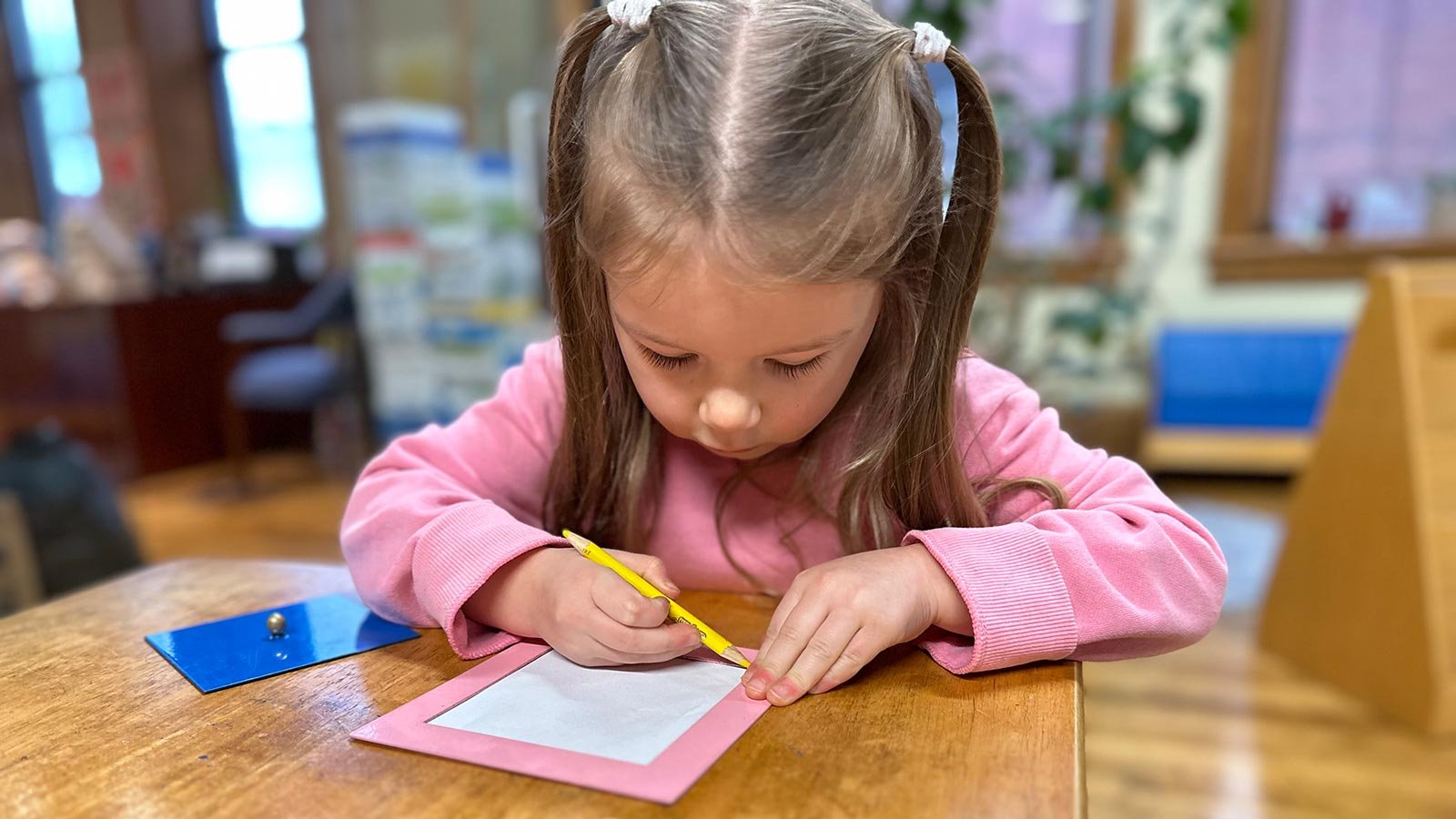
Inside Our School
Our directors are trained to understand each child’s cognitive development and interests, offering support and encouragement to nurture their natural love of learning. Lessons are typically given one-on-one or in small groups, ensuring that each child receives the attention they need. We foster an atmosphere of respect, cooperation, joyful independence, and a strong sense of community.
We follow the Montessori work cycle of three hours, which includes a morning meeting and time for music and movement. For families interested in lunch, we’ve partnered with Winston’s Café to offer a delicious hot lunch option, or children can bring their own meals from home.
At TCCH, we emphasize creating a ‘Peaceful Classroom’. Beginning in the toddler class, children are introduced to grace and courtesy lessons that teach them how to respect others, wait their turn, and resolve conflicts. These skills help them develop a sense of order and routine. As they grow, they are naturally drawn to the geography area of the classroom. Here, they begin to understand their role in the global community, learning that everyone shares basic needs and that they can make a meaningful difference in the world around them.
We create a warm and inviting environment where children can explore a variety of subjects, including language, math, art, science, geography, music, and practical life skills. Our classrooms are designed with a wide range of activities that cater to different interests and developmental stages, allowing each child to discover and grow at their own pace. Whether they’re working with simple tasks or more complex projects, every child can find something that sparks their curiosity.
Our Mission
The Clarksburg Children’s House is dedicated to providing authentic Montessori education in a diverse, perfectly prepared, multi-age environment. We nurture each child’s potential by recognizing their unique needs and self-actualization through independence, love of learning, creativity, and mutual respect. We strive to establish a foundation of learners who will create our future global society.
Our Diverse and Inclusive Community
At TCCH we are invested in creating respectful relationships among teachers, administrative staff, parents, and children. We appreciate and celebrate diversity and recognize how we as a school benefit from the diverse cultural backgrounds and traditions that all members bring to our community. We work to provide an inclusive environment and do not discriminate based on race, sex, religion, creed, national origin, ancestry, ethnicity, handicap, or sexual orientation.


